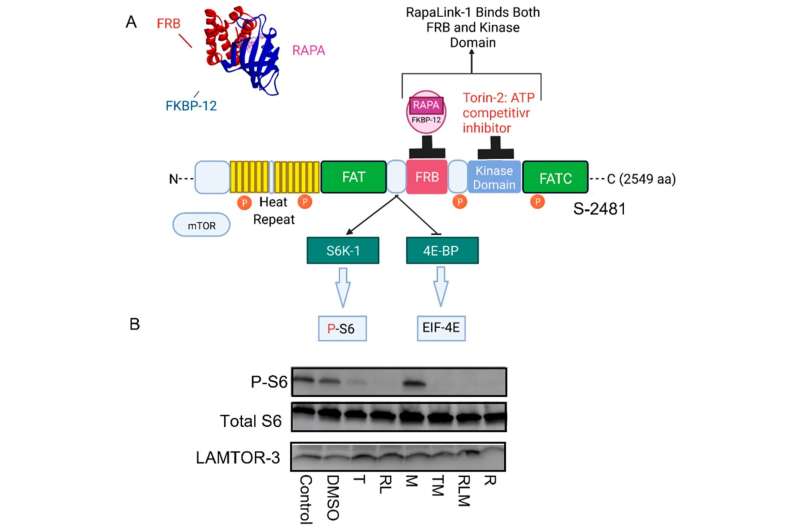Study examines how mTOR complexes control energy metabolism

A new study led by Associate Professor Ghada Soliman examines how the mechanistic target of Rapamycin (mTOR) protein regulates nutrient metabolism and glucose homeostasis in humans.
For their study published in Nutrients , Dr. Soliman and colleagues used pancreatic beta cells to investigate the effects of mTOR complexes on the metabolomics, all the metabolites in a biological sample, as a proxy of the internal exposome and the amino acids, the building blocks of proteins. In addition, mitochondrial functions were analyzed as a readout of energy metabolism and oxidative stress. The findings provide a mechanistic underpinning and biological insight to show how mTOR complexes (mTORC1 and mTORC2) regulate the metabolism in the pancreas.
Understanding how the mTOR complexes function in controlling energy metabolism will shed light on the causal contribution of mTOR to caloric restriction and intermittent fasting, which are currently sought after for weight loss, cardiometabolic health benefits, and increasing lifespan.
"Caloric restriction and intermittent fasting are increasingly recognized as tools for weight loss programs, longevity, and health effects," says Dr. Soliman. "Understanding how these approaches work biologically in the human body will enable us to design personalized approaches for precision nutrition and public health."
More information: Ghada A. Soliman et al, mTORC1 and mTORC2 Complexes Regulate the Untargeted Metabolomics and Amino Acid Metabolites Profile through Mitochondrial Bioenergetic Functions in Pancreatic Beta Cells, Nutrients (2022). DOI: 10.3390/nu14153022





















